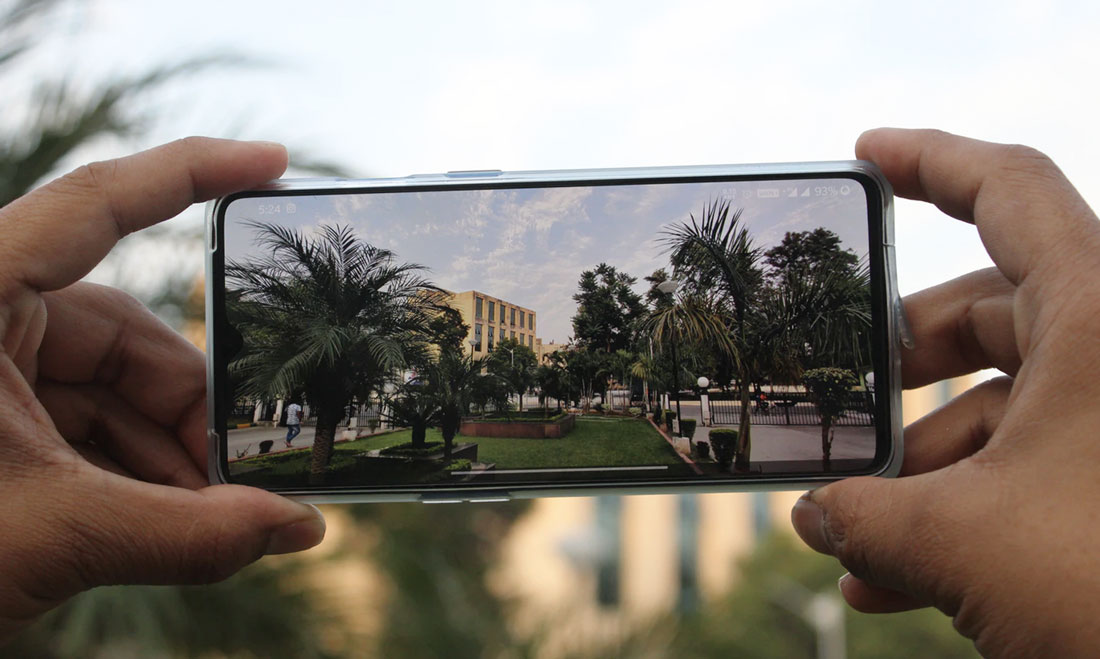Our smiles and social media operate on the same principles.
Before you hiss and close this page, let me explain.
Let’s say you win the lottery or your crush tells you they love you. This stimulus (winning money or love) makes you happy, and a smile comes to your lips. However, there are complex processes mediating the reception of the stimuli and their translation into a smile.
When you experience a positive stimulus that makes your brain happy, your brain releases endorphins and transmits signals to your facial muscles to trigger a smile. When you smile, there is a feedback loop, your brain gets the signal that you are smiling and becomes even happier.
So essentially, you smile because your brain is happy, knows it, and really wants to show it.
Can you be happy and still not smile? Yes, but ordinarily, that’s not what your brain wants to do. In fact, 19th-century psychologist William James insisted that if a person does not express an emotion, he has not felt it at all. To him—and many others — it is the expression of that emotion (in this case through smiling) that gives that emotion validity and tangibility.

We can stretch this smile theory to the area of social media.
Why do we post on social media?
You know what, scratch that. Why do you post on social media?
Take some time to think about it.
An article titled The Psychology of Social Sharing divides our reasons for posting on social media into five categories:
- Physiological: For the health and physical benefits, e.g. retweeting an exercise routine or sharing info about a new restaurant.
- Safety: Posts on ensuring physical, mental, and financial security
- Love/belonging: Posts that foster a feeling of community. Think Zodiac sign pages, MBTI personality type pages, and subreddits about different professions.
- Esteem: Basically, your average me-centric post, e.g. a shirtless picture showing your abs and defined pecs captioned, ‘Hard on the outside, soft on the inside.’
- Self-actualization: Posts that reflect people’s perception of their ideal self, e.g. everything on LinkedIn😅😅, posts about getting into a better stage of life (getting a job, leaving the country, graduating, etc.)
Now imagine you won an all-expense-paid trip to Santorini. You’d fly first class and lodge in the most expensive room of a five-star hotel. You get to see the best spots and meet different celebrities on holiday there. There are many other perks, but there is one condition:
You cannot post any pictures of this staycation.
How would you feel?
If you are an avid user of social media (i.e. you are used to posting random minutiae about your life), you would feel uncomfortable with this. During the trip, you’d find yourself reaching for your phone to capture, document, and share this wonderful experience with your fans/followers. Sure, you can tell them about the trip or write about it on your IG story or WhatsApp status, but it is not the same. Just like the smile gives happiness tangibility, pictures of your sun-kissed body against the backdrop of the blue-green Mediterranean (with a motivational quote for good measure), give your experience (and the happiness you derived from it) tangibility. It makes the experience true, real, and, dare I say, envy-worthy.

Four years ago, I had a small encounter with someone that I won’t forget in a hurry. We connected over a topic we both found interesting. After a few minutes of discourse, he asked for my Instagram handle. I found it odd because most people prefer to converse over WhatsApp. However, when I learned he was an IG influencer, the chips fell into place. We exchanged handles. I saved his handle on my note app. He, on the other hand, searched for my account immediately. After a few scrolls, he looked at me with irritation and something else I could not place and said, ‘Either your boyfriend is boring or nothing interesting happens in your life.’ Laughing, I told him I didn’t have a boyfriend and he goes, ‘With a page like this, I am not surprised. Your life is dry.’
Like smiles, social media posts have come to be a reflection of our social and emotional states. Everything is put online.
On your birthday, you make a post, reflecting on the previous year and hoping for a(n) (even) better year.
When he pops the question, the gram fam is the first to know (insert picture of ring sitting pretty on well-manicured fingers with a long post about how they are your best friend and can’t wait to thug out forever with them)
When you have a baby, people come to pay homage with their likes, comments, and huggy face emojis — sometimes the child even ‘opens’ an IG account days after their birth and three months later, can even wish their mother a happy birthday on her special day.
On Mother’s and Father’s day, we post our parents on our stories and write long-winded posts to appreciate them even though they a.) are not on social media or b.) the length and breadth of their knowledge of social media comprise sending those WhatsApp BCs we all love… to hate.
When we lose someone, we post a picture of them, animated faces smiling into the camera. Even though (to our knowledge) there is no 5G in the great beyond, we write long odes about our departed loved ones on Facebook, IG, and the rest. We talk about the memories we had of and with them. Of how we would miss them before ending with something deep like ‘till we meet again.’
For me, this usually happens with micro-moments I experience with the people I love. When my younger brother randomly says something witty and hilarious or when I have a profound discussion with a friend, I feel this pressing urge to share it with my online community.
Are all these emotions (the happiness of your birthday and engagement, the grief at the loss of a loved one, the excitement of a specific interaction, and the conflicting emotions of childbirth) valid? Of course, they are.
But why is it we sometimes feel these emotions are not valid until we post them?

Posting (people) on social media has become the 6th love language. I have heard people berate others for not posting their mothers on Mother’s day. If you love your Mom and you know it, it is only logical that you show it by posting her on a national day for mothers. I have seen people insinuate that people that do not post their partners are a.) ashamed of their partner b) probably double dating. I have also seen people start senseless wars with a friend because said friend just texted them on their birthday and did not upload their pictures on different social platforms.
I believe that sometimes, two things can be true at the same time. Sure, some people do not care about their parents or are too ashamed of their partners, or have multiple partners. However, just like we sometimes stifle a smile when we are overjoyed, not posting the people you care about does not mean you do not love them.
So why do we insist that love for someone or contentment with our lives is only real when it’s exhibitionistic and performative?

Let’s go back to smiles for a minute
Giving credence to the saying ‘fake it till you make it’, psychologists at the University of Cardiff in Wales found that smiling even when you are unhappy can improve your mood. Co-author of the study, Michael Lewis, says our brains are not isolation centers for our emotions; like a tuning fork, other parts of our bodies help to amplify those emotions that we feel.
This tallies with the findings of Dr. Eva Ritzo, psychiatrist and co-author of ‘The Beauty Prescription: The Complete Formula for Looking and Feeling Beautiful.’ Ritzo says that smiles are contagious. This contagious nature of smiles results from the mirror neurons that fire when we smile. Hence bringing us back to that feedback loop theory. We feel happy, we smile, our brain picks up on the smile (thanks to the mirror neurons), and feels happier.
I feel social media operates on the same principles. Essentially, when we post about a particular event in our lives, social media becomes one big external mirror neuron, amplifying the feelings we feel about that event. This is especially greater with positive events (or wins, in internet-speak). In their paper ‘Are Close Friends the Enemy?, Wilcox, and Stephen state that social media sites can increase self-esteem, thanks to our tendency to post the highlights of our lives. However, this increase in self-esteem comes with an equivalent decrease in self-control. We become superficial and so focused on showing people we are having a good time as opposed to actually having a good time.
While scrolling through my WhatsApp stories two years ago, I saw a beautiful picture of my friend and her love interest. They went to a wedding together, and they both looked stunning (chef’s kiss). I loved the picture, and I showed it with some emotive GIFs and fire emojis for good measure. She laughed, thanked me, and said, ‘The entire day was nonsense sha.’

Taken aback, I quickly typed, ‘Why? Wetin happen?’
‘E no give me face,’ she said in her voice note. ‘He was on his phone the whole time. When he was not on the phone, he was sleeping. The only time paid attention to me was when I wanted to take the picture.’
Like me, there were probably many other people in her DM dropping fire emojis and even hinting at Disney endings. But in reality, that day was just a horrible mess for her. The only thing that probably made that day worthwhile was the reactions and the yass!-ification of how hot she looked.
I know you are probably thinking, ‘So are you saying we should stop posting on social media?’
No, I am not.
I have always been an advocate for consciousness. You have to be aware of the motivation behind your actions and inactions, even if you are not going to change at the moment. That awareness is the first step toward healthier practices.
You can post about how their love makes your blood sing and how you’re excited about the next stage of your life/new age.
You can post that bikini picture from your vacation and caption it, ‘A hot bowl of catfish pepper soup.’
However, you have to ask yourself this question: Am I posting this because I am happy about it or because I want that dopamine hit that the mirror of other people’s validation gives me?
Like what you read? To read more about how social media has rewired our psychology, check out Connected but Disconnected: 11 Ways Social Media is Killing You.
To find out why hardship is just what the doctor ordered, check out I Wish You a Hard Life.








Very true🤔
Lovely and informative read